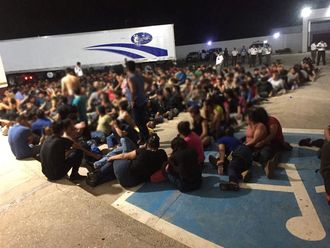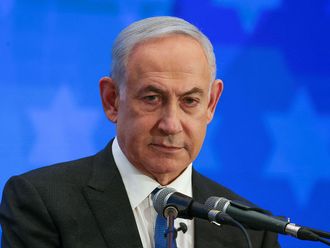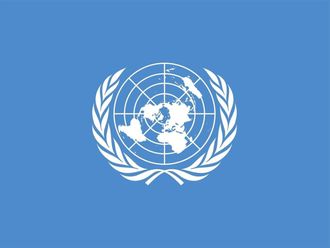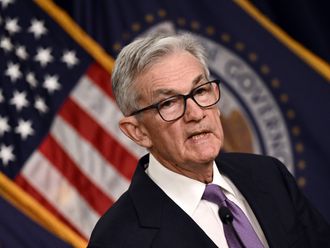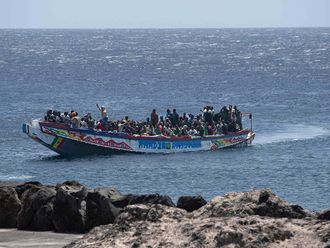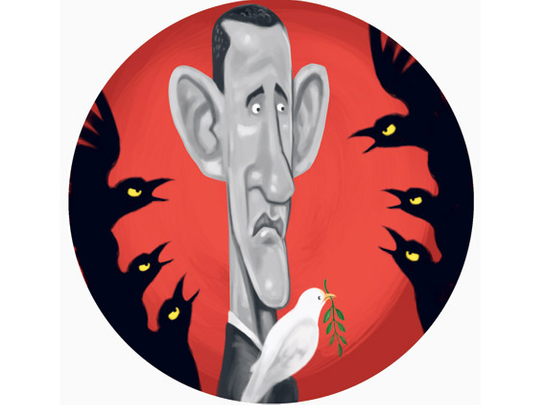
Over the past couple of years, US president Barack Obama has been trying to redefine the very nature of diplomacy and revitalise a new foreign policy approach. Having recognised the damage inflicted by the policies of his predecessor on the US standing in the world, Obama discovered rather early that he would need more than scant cooperation from the emerging regional and international powers. Re-establishing US leadership in an emerging multi-polar world would indeed require a new vision to deal with the so-called Bric (Brazil, Russia, India and China) in addition to Iran.
While trying to do just that, Obama was faced with some tough questions such as what would he do when key partners — China and Russia in particular — are also seen as rivals? How would he start a dialogue with ‘enemies' such as Iran without giving the impression that he is weak? How to act on his promises to resolve the Arab-Israeli conflict without paying a heavy price domestically?
Whether Obama has found answers to these questions or not, he seemed to have believed that re-establishing US global leadership must start from the Middle East. Clearly, it is in the Middle East that so many international interests, conflicts and crises converge and form an explosive mixture. He was hence desperate to reach a grand bargain to protect vital US interests and redefine the role of his country in the region. A new Yalta must have hence crossed his mind.
US Secretary of State Hillary Clinton was hastily sent to Moscow. She reset the button with her Russian counterpart, singling a new beginning in the relationship between the two great nuclear powers. China was similarly groomed, but to an extent. In the Middle East, serious efforts were made to revive the peace process and repair the relationship between the US and the Islamic world. For a moment, Obama thought that he could do what a dozen other US presidents could not.
There is so far no reason to question the sincerity of the US president when he says that he seeks to resolve the Arab-Israeli conflict or mend relations with the Islamic world. After all, these are national US interests, as many of Obama's top aides have clearly put it. But the vision and the approach of the US president were not as clear as they should have been. Obama was trying to abandon the old policies but without creating new ones in place. His inability to take tough stands on so many foreign policy issues has made him look hesitant, weak and vulnerable. His election campaign's slogan "change we can believe in", was transformed into "maintain the status quo". If he continues to use this approach he is unlikely to retain the sort of initiative needed to revitalise the stand of the US.
Different outcomes
It is pathetic to think that old approaches would lead to different outcomes. This pattern of thought would even lead to further deterioration in the influence of the US in the region.
In fact, while the Middle East and the Gulf region are becoming strategically more important, the US is preparing to withdraw its forces from Iraq and Afghanistan. Washington can still threaten military action against Iran, but the general feeling in the region is that the US cannot afford to get drawn into a new swamp. Furthermore, it is not only that the US is not making more friends in the region but is at risk of losing traditional allies. Pakistan, for example, is being alienated and is becoming increasingly hostile to US policies. Worse still, as a result of the US policy in Afghanistan and the Indian subcontinent, Pakistan is on the brink of anarchy.
If the smart power approach of the Obama administration is to work, the US will have to deal not only with allies but with rivals too. The US may also need to lean on its allies, particularly Israel, to accept some sort of a compromise with the Palestinians.
India should be similarly pressured to give some concessions away to its western neighbour so that the government in Islamabad does not lose control on an increasingly divided country. Iran will have also to be integrated in the international community. Sanctions, isolation and threats will only strengthen the hardliners and produce more tension in the Gulf.
Can the Obama administration take this vital step? At the very beginning, it looks like it could. Now that is not certain. In fact, all signs indicate that Washington is trying to maintain the status quo.
Dr Marwan Al Kabalan is a lecturer in media and international relations at Damascus University's Faculty of Political Science and Media in Syria.


